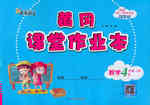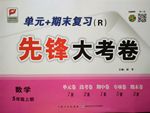题目内容
Samuel Langhorne Clemens better known by his pen name Mark Twain was an American author and humorist. He is most noted for his novels. The Adventures of Tom Sawyer( 1876) ,and its sequel(续集) ,The Adventures of Huckleberry Finn(1885) ,the latter often called "the Great American Novel. "
Twain grew up in Hannibal, Missouri, which would later provide the setting for Huckleberry Finn and Tom Sawyer. He acted as a printer. He also worked as a typesetter and contributed articles to his older brother Orion’s newspaper. After serving as a printer in various cities, he became a master riverboat pilot on the Mississippi River, before heading west to join Orion. He was a failure at gold mining, so he next turned to journalism. While a reporter, he wrote a humorous story The Celebrated Jumping Frog of Calaveras County, which became very popular and brought nationwide attention. His travelogues including A Tramp Abroad were also well-received. Twain had found his calling.
He achieved great success as a writer and public speaker. His wit and satire (讽刺) earned praise from critics and peers, and he was a friend to presidents, artists, industrialists, and European royalty.
He lacked financial sense, and though he made a great deal of money from his writings and lectures, he wasted it on various ventures, in particular the Paige Compositor, and was forced to declare bankruptcy(破产). With the help of Henry Huttleston Rogers he eventually overcame his financial troubles. Twain worked hard to ensure that all of his loaners were paid in full, even though his bankruptcy had relieved him of the legal responsibility.
Twain was born during a visit by Halley' s Comet (彗星) ,and he predicted that he would "go out with it” as well. He died the day following the comet’s next return. He was known as the" greatest American humorist of his age” and William Faulkner called Twain" the father of American literature. "
53. the text is written to .
A. introduce the American literature briefly
B. give us a brief introduction of Mark Twain
C. explain why Mark Twain is so outstanding
D. convince us how Mark Twain was well-informed
54.Which of his works is a turning point for Mark Twain?
A. The Adventures of Tom Sawyer
B. The Adventures of Huckleberry Finn
C. The Celebrated Jumping Frog of Calaveras County
D. A Tramp Abroad
55. According to the text, we know that .
A. Mark Twain's wit and satire was admired by people
B. Mark Twain was good at gold mining
C. Mark Twain managed money matters well
D. Mark Twain was irresponsible for his debts
56. The author mentions Halley's Comet in the last paragraph to show .
A. it was a disaster to Mark Twain B. it brought good luck to Mark Twain
C. Mark Twain believed in God D. Mark Twain was very humorous
BCAD

 教育世家状元卷系列答案
教育世家状元卷系列答案 黄冈课堂作业本系列答案
黄冈课堂作业本系列答案 单元加期末复习先锋大考卷系列答案
单元加期末复习先锋大考卷系列答案When Paul was a boy growing up in Utah, he happened to live near a copper smelter(炼铜厂),and the chemicals that poured out had made a wasteland out of what used to be a beautiful forest.One day a young visitor looked at this wasteland and called it an awful area.Paul knocked him down.From then on, something happened inside him.
Years later Paul was back in the area, and he went to the smelter office.He asked if they had any plans or if they would let him try to bring the trees back.The answer from that big industry was “No”.
Paul then went to college to study the science of plants.Unfortunately, his teachers said there weren’t any birds or squirrels to spread the seeds.It would be a waste of his life to try to do it.Everyone knew that, he was told.Even if he was knowledgeable as he had expected, he wouldn’t get his idea accepted.
Paul later got married and had some kids.But his dream would not die.And then one night he did what he could with what he had.As Samuel Johnson wrote, “It is common to overlook what is near by keeping the eye fixed on something remote.Attainable good is often ignored by minds busied in wide ranges.” Under the cover of darkness, he went secretly into the wasteland and started planting.
And every week, he made his secret journey into the wasteland and planted trees and grass.For fifteen years he did this against the plain common sense.Slowly rabbits appeared.Later, as there was legal pressure to clean up the environment, the company actually hired Paul to do what he was already doing.
Now the place is fourteen thousand acres of trees and grass and bushes, and Paul has received almost every environmental award Utah has.It took him until his hair turned white, but he managed to keep that impossible vow he made to himself as a child.
【小题1】When Paul was a boy,______________.
| A.he had decided never to leave his hometown |
| B.the economy of Utah depended wholly on the copper smelter |
| C.no laws were made to protect the environment against pollution |
| D.he had determined to stop the copper smelter polluting the area |
| A.Because he wanted to find out the best way to save the area himself. |
| B.Because he was interested in planting trees since he was young. |
| C.Because he wanted to get more knowledgeable people to help him. |
| D.Because he thought his knowledge would make his advice more persuasive. |
| A.That it was impossible for trees to grow on the wasteland. |
| B.That his normal work and life would be greatly affected. |
| C.That no one would like to join him in the efforts. |
| D.That he had to keep everything he did secret. |
| A.they realized the importance of environmental protection |
| B.What Paul was doing moved them |
| C.Paul persuaded them to help him |
| D.they had legal pressure |
| A.action speaks louder than words |
| B.perseverance(持之以恒)will work wonders |
| C.God helps those who help themselves |
| D.many hands make light work |
“Mark Twain” was the name used by Samuel Langhorne Clemens (1835~1910) when he wrote books.His father was a lawyer,but a poor one,who lived in Florida,Missouri.The family was so poor that Samuel did not receive much teaching.He had to learn all that he could from the people whom he met.His father died when he was very young,and then there was even less m oney than before.
oney than before.
Many of the men in this part of America worked in the ships on the great Mississippi River,and he did this himself at one time (1857).
Where did he find the nam e “Mark Twain”? It came from the great river itself.It was part of one of the cries used by men who worked in the ships.When a man called “By the mark twain!” he meant that the river was “two marks deep” there,that is to say,six feet deep ( “Twain” is an old form of the word “Two”.) Samuel Clemens often heard these words when he was young,and he used them as a pen name all his life.
e “Mark Twain”? It came from the great river itself.It was part of one of the cries used by men who worked in the ships.When a man called “By the mark twain!” he meant that the river was “two marks deep” there,that is to say,six feet deep ( “Twain” is an old form of the word “Two”.) Samuel Clemens often heard these words when he was young,and he used them as a pen name all his life.
During his work on the Mississippi he met travelers of all kinds,and this helped him a great deal when he started to write.But the number of travelers became smaller when war started in Americ a
a in 1861.Many of the great ships on the river stopped work.Samuel left then and went to Nevada with his brother,who was at that time Governor of Nevada.There,near the town of Carson,Samuel became a gold miner,but he never made much money at the time.He soon saw that life in the gold mines was not for him.He also tried writing for the newspapers in Nevada,and this seemed more hopeful.He found that he could write.
in 1861.Many of the great ships on the river stopped work.Samuel left then and went to Nevada with his brother,who was at that time Governor of Nevada.There,near the town of Carson,Samuel became a gold miner,but he never made much money at the time.He soon saw that life in the gold mines was not for him.He also tried writing for the newspapers in Nevada,and this seemed more hopeful.He found that he could write.
He went to Europe in 1867 and visited France and Italy.In 1870 he married Olivia Langdon,and two years later he was spending nearly all his time writing.Among his books is his own story (1908).
He is now always known as Mark Twain,and many people do not even know that his family name was Clemens.He traveled in America and in England,and went to Oxford in 1907.He was one of the great American writers of the time,and could make his readers laugh—a thing which few writers can do.He died in 1910.
【小题1】“Mark Twain” was .
| A.a famous American writer |
| B.name of a book |
| C.a great river in America |
| D.a large ship |
| A.his father died too early |
| B.the family was very poor |
| C.he disliked school very much |
| D.he could learn what he liked from the people he met |
| A.His poor childhood. |
| B.The Mississippi River. |
| C.All kinds of travelers he met. |
| D.His brother. |
| A.Samuel loved writing from his early age |
B.S amuel did not love writing at the beginning amuel did not love writing at the beginning |
C.his writings to  the newspaper were successful the newspaper were successful |
| D.his brother encouraged him to write more |
| A.write a lot for his readers |
| B.make a lot of money for his family |
C.cause his readers to l augh augh |
| D.travel everywhere he wanted |